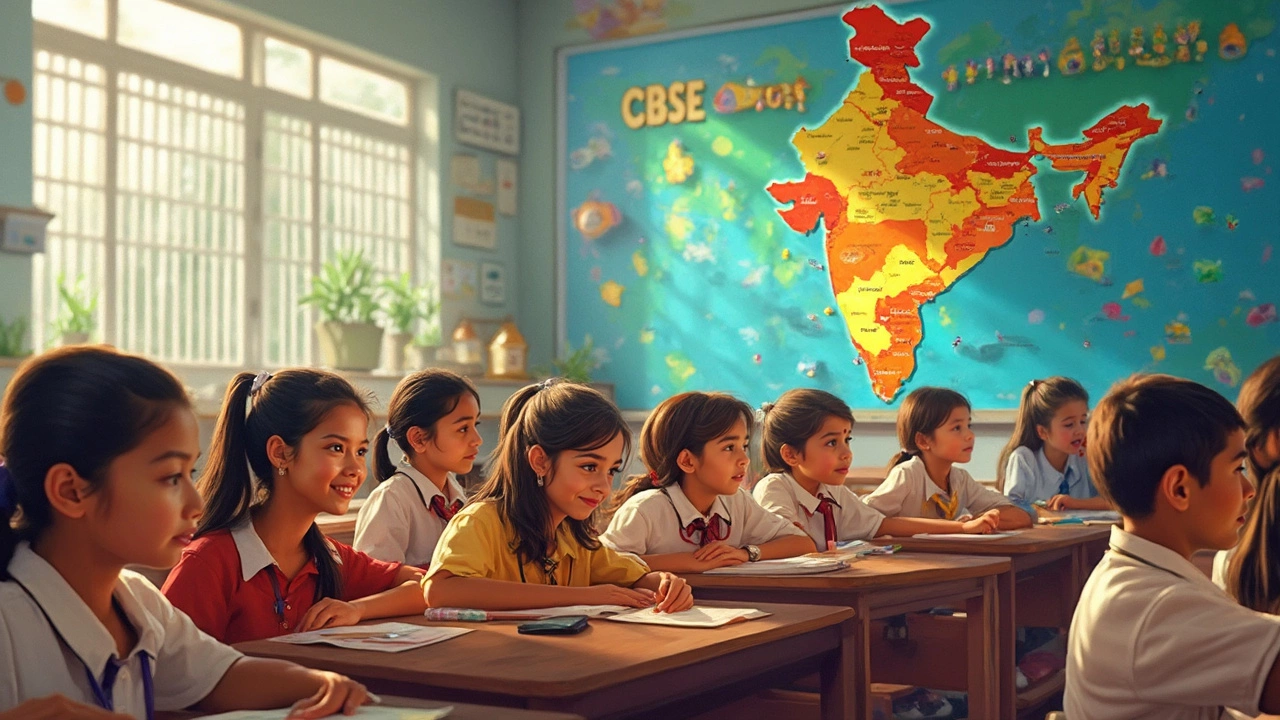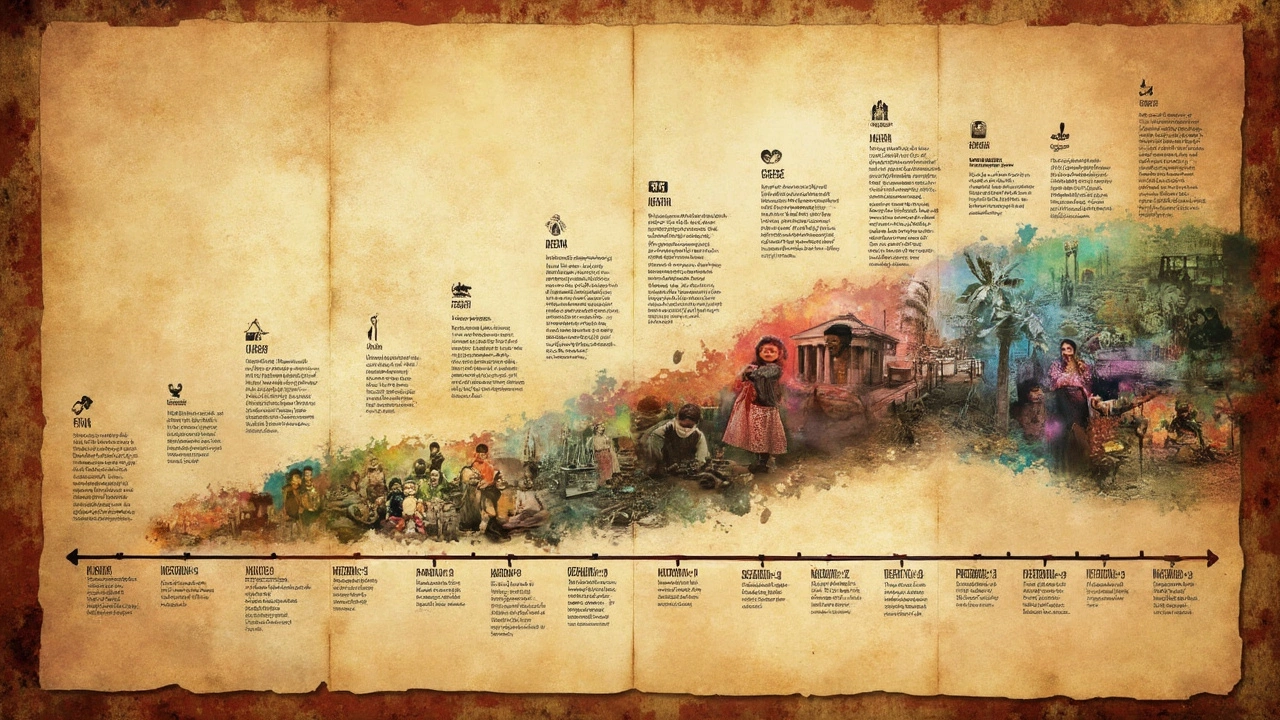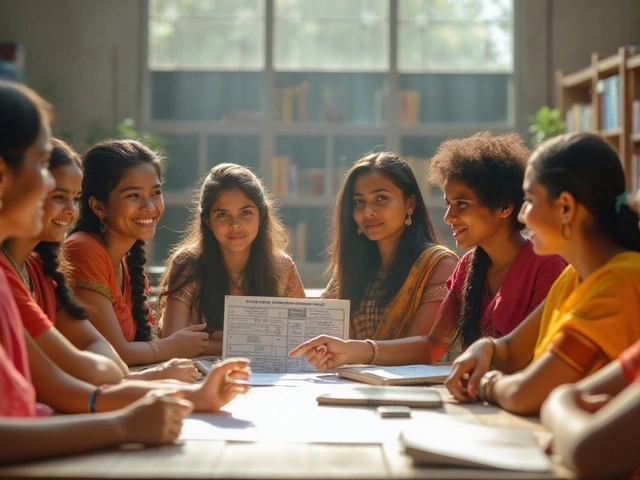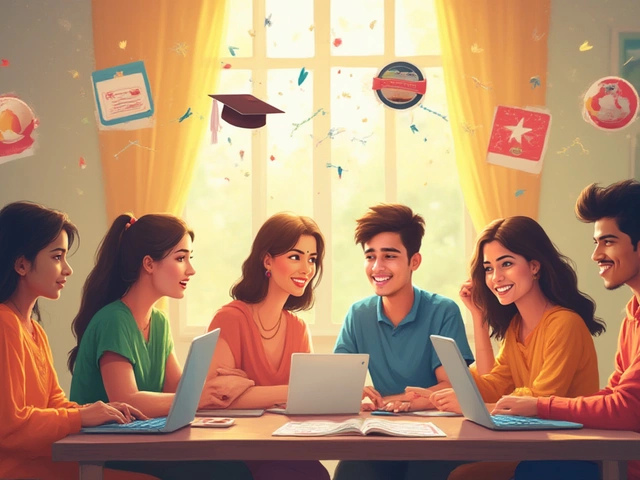
You’ve probably heard parents, teachers, or students casually call CBSE the “Delhi board.” But is this just a harmless nickname, or does it hold truth? The mix-up runs deeper than you’d think. CBSE, or the Central Board of Secondary Education, is stitched into the fabric of Indian schooling, but its origin and operations might surprise you. Let’s untangle this confusion, see how CBSE grew from its early days, and check why it matters nationwide—not just in Delhi.
Tracing the Roots: Why Is CBSE Often Linked to Delhi?
When someone tosses around the term "Delhi board," there’s a reason. CBSE’s headquarters is smack in the heart of Delhi. Since its formation in 1962, all the important stuff—big decisions, exam paper design, and curriculum updates—has happened from there. Here’s the catch though: just because it sits in Delhi doesn’t mean it works only for Delhi schools.
Back in 1929, the government set up the first version of CBSE called the Board of High School and Intermediate Education, Rajputana. That covered areas like Ajmer, Gwalior, and parts of Central India. By 1952, it was renamed as the Central Board of Secondary Education. A decade later, in 1962, the board made Delhi its home, becoming the go-to office for everything CBSE nationwide. The placement in Delhi made it visible for schools in the region, which might be why many think of it as a Delhi-centric board.
So, why don’t we call other boards by their city names? Maybe because most Indian education boards are run by each state—like Maharashtra State Board or Gujarat Board—while CBSE serves the whole country, yet happens to be run from Delhi. The term “Delhi board” is just a shorthand, not a fact. If a student in Kerala or Assam studies under CBSE, their syllabus is exactly the same as the one in Delhi.
If you check the Board's official website, CBSE itself writes, “The Central Board of Secondary Education is a national level board of education in India for public and private schools, controlled and managed by Government of India.” No mention that it’s only for Delhi students or Delhi schools.
Here’s another reason for the confusion: Delhi, being India's capital, has hundreds of schools directly affiliated with CBSE. When students win national competitions, score well in exams, or secure university admissions abroad, CBSE Delhi schools often get the limelight. Headlines like “Delhi toppers shine in CBSE results” only feed into the wrong idea.
To put it plainly, absolutely any school in any part of India (and even abroad) can be affiliated to CBSE. It’s run by Delhi, but it’s not just for Delhi. It has nothing to do with the Delhi state government’s education board, which is the Directorate of Education, Delhi.
What Is CBSE’s Real Purpose and Who Does It Serve?
Think of CBSE as India’s education backbone. Where most state boards tweak their textbooks, syllabus, and even exam patterns to suit local needs (like promoting their regional language or focusing on local history), CBSE offers a standard plan. This is perfect for families who shift cities due to transferable jobs—like those in defense, railways, or central administrative services.
CBSE now serves:
- About 28,000 schools in India (as per 2024 stats)
- 240+ schools in 28 foreign countries
- Over 22 million students (combined across all grades)
Foreign schools? Yep, CBSE affiliates schools in the United Arab Emirates, Singapore, Russia, Qatar, and even the US. These cater mostly to Indian expat families, offering their kids the same syllabus and assessment, just like back home.
CBSE’s curriculum, textbooks, and teaching style are designed and updated by the National Council of Educational Research and Training (NCERT), not unique to any city or state. One big advantage of this? Fairness for national-level entrances. Tests like NEET-UG (for medical studies) and JEE (for engineering) follow CBSE (NCERT) patterns, so CBSE students tend to feel more at home when solving those papers.
Here’s a quick look at CBSE’s reach in numbers, as of 2024:
| Attribute | CBSE | Delhi School Education Board |
|---|---|---|
| Total Schools Affiliated | 28,000+ | ~2,800 |
| Coverage | All India + International | Delhi only |
| Established | 1929 (current form: 1962) | 1981 |
| Exam Pattern | Single syllabus, national exams | Delhi syllabus, state exams |
| Language | Hindi, English (mainly), other options | Hindi, English |
For anyone changing cities often, studying under CBSE makes life easier. No shifting from one syllabus to another and no re-learning the basics. That’s why defense children or diplomats abroad stick with it. If you’ve faced the pain of shifting schools under different boards, you know how real the struggle can be.
Students who want a shot at national exams often pick CBSE over state boards. One tip if you’re thinking of college admissions outside India: CBSE pass certificates are widely accepted by foreign universities, especially in the US, UK, and Australia.

The Big Difference: CBSE vs. State Boards Like Delhi Board
Here’s where the confusion gets ugly. Delhi itself runs *two* kinds of schools: those under the state’s Directorate of Education (Delhi School Education Board) and those affiliated to CBSE. Both exist side by side, but follow totally different rules and objectives.
Delhi Board has syllabi focusing more on local needs, policies, and culture. Its final Class 10 and 12 certificates aren’t always recognized in the same way as CBSE ones, especially outside Delhi or abroad. State boards often conduct exams in the regional language as well, but CBSE uses mainly English and Hindi as the medium.
Some state boards let their students customize the course (electives, work experience, etc.), while CBSE keeps a more centralized scheme. Teachers in CBSE schools receive training through national programs, and curriculum reviews happen every few years after analyzing national goals and global trends.
In the wider world, CBSE stands alongside global curricula like Cambridge IGCSE and International Baccalaureate. State boards, except a few top ones, rarely get global recognition. Parents looking for continuity in their kid’s education usually aim for CBSE. But hey, every board has fans—some love the state board’s focus on culture, others go for CBSE’s standardization. Pick what matches your needs best!
Now, CBSE is different from ISC/ICSE (CISCE board) as well. ICSE is run by a private organization, and has a reputation for being detailed and literature-heavy. By contrast, CBSE wants students to master concepts—especially in science and math—without forcing rote learning.
Here are a few quick facts that set CBSE apart from others:
- National focus, not regional.
- Uniform curriculum across India and abroad.
- Revised syllabus every few years, with nationwide teacher training.
- Direct link with central government (Ministry of Education), not any state.
If you hear anyone say CBSE is just a Delhi thing, you know exactly how to burst that myth.
"CBSE’s aim is to provide a common platform for all children in India, regardless of their background or location." – Dr. Saroj Suman Gulati, educationist and recipient, Padma Shri
Myths Busted: Facts About CBSE's Curriculum and Exam System
Myth-busting time! First off, CBSE exams are not set only by Delhi-based educators. The board invites teachers and paper-setters from dozens of cities every year to design, review, and moderate question papers. The curriculum committee includes subject experts from across India, so it remains balanced and up to date.
Many think the CBSE curriculum is harder than state boards. This isn’t always true. While the focus is on concept-based learning, especially in science and math, it also emphasizes understanding over memorization. In the last five years, CBSE’s paper pattern has become more practical, with more options for application-based questions, short answers, and project work.
There’s also this rumor that CBSE changes its syllabus at the drop of a hat, making life tough for students. Reality check: changes only come after long periods of research, trial, and consultation with teachers and education councils. In 2023, for instance, CBSE trimmed some chapters in science and social studies for Classes 9 and 10, to reduce overload after COVID disruptions. But before doing so, they involved school principals from every region.
CBSE has also gone digital. It was one of the first boards to offer:
- Online registration for classes and exams
- E-learning resources and mock tests for students
- On-screen marking systems for quicker results
- Student-friendly reforms (like re-evaluation, online answer script viewing, and compartment exams)
A lot of the confusion about question difficulty comes from sample papers, sometimes circulated on social media way ahead of boards. Students get anxious and think those same questions will appear, but CBSE tries hard to design a wide range of question types. What helps? Practicing from NCERT textbooks, solving last 5 years' board papers, and focusing on understanding concepts, not mugging up definitions. Remember: examiners like answers that show clear thinking, not just textbook lines copied word for word.
CBSE has also rolled out Continuous and Comprehensive Evaluation (CCE), focusing on developmental aspects and not just pen-and-paper scores. They’re now big on mental health, with counseling helplines for students before and after board exams.
Planning to study abroad? One top tip: Always keep your original CBSE certificates safe. Embassies, foreign unis, and verification agencies love them. Lost your pass certificate? Use CBSE’s DigiLocker facility to get a digital copy fast.

CBSE’s Unique Spot: Tips for Parents and Students
If you’re a parent deciding between CBSE and other boards, think about your plans over the next few years. Planning to move between cities? CBSE makes the move painless. Gunning for JEE, NEET, or national Olympiads? CBSE’s NCERT texts are your best friends.
Another tip: Check the school’s actual teaching quality. Two CBSE-affiliated schools can look totally different—one might have smart classrooms and sports fields, another may only have two floors and a tiny library. The board affiliation tells you about the exams and certificates, but not the daily atmosphere or depth of teaching. Don’t forget school culture matters as much as the syllabus!
If you’re aiming for studies outside India, CBSE’s Class XII certificate will usually do the trick. Countries like Australia, Singapore, New Zealand, UAE, Canada, and US institutions recognize it. But check university requirements—sometimes they ask for extra entrance tests regardless of your school board.
There’s a misconception that CBSE means students can slack in creative arts or sports. Not true! CBSE encourages co-curricular activities, special talent competitions, and national-level cultural festivals. Think of all those CBSE school bands and quiz teams that make the news each year.
Here’s a quick list of tips if you’re studying in a CBSE school or planning to switch:
- Use the official CBSE website for updates—avoid rumors
- Study from NCERT textbooks—they are the board’s primary resource
- Connect with teachers about any changes, especially close to exams
- Practice previous years’ question papers
- Check admission rules for every university or college you’re interested in
CBSE isn’t stuck in the past. They’re rolling out changes for coding, AI-literacy, and even new subjects like financial management and public speaking from early grades. The goal: keep Indian kids ready for tomorrow’s careers, not just today’s textbooks.
Before wrapping up, remember: calling CBSE a “Delhi board” is just a mix of old habits, confusion, and the board’s address. The real answer? It’s everyone’s board, for every Indian student, wherever they live.





